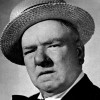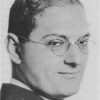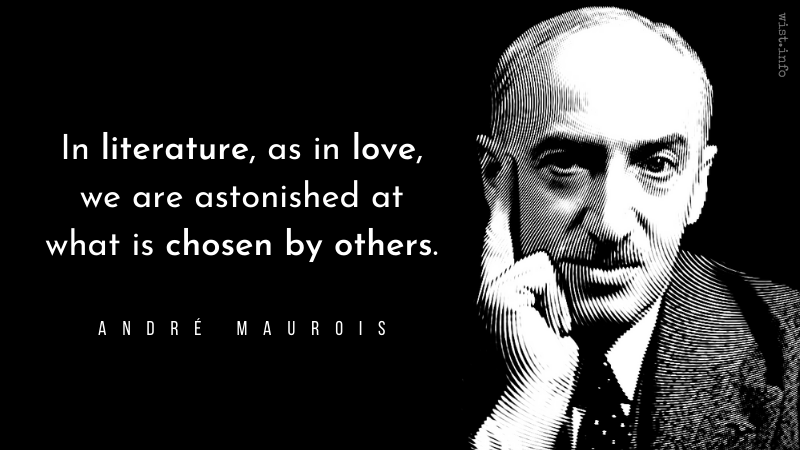Mirth pleaseth some, to others ’tis offence,
Some commend plain conceit, some profound sense;
Some wish a witty Jest, some dislike that,
And most would have themselves they know not what.
Then he that would please all, and himself too,
Takes more in hand than he is like to do.Benjamin Franklin (1706-1790) American statesman, scientist, philosopher, aphorist
Poor Richard (1733)
(Source)
Quotations about:
preference
Note not all quotations have been tagged, so Search may find additional quotes on this topic.
Hell, I never vote for anybody. I always vote against.
W. C. Fields (1880-1946) American entertainer [b. William Claude Dukenfield]
Comment to Gene Fowler
(Source)
Quoted in Robert Lewis Taylor, W. C. Fields, ch. 25 (1949). See also Adams.
More discussion about the origins of this quotation: I Never Vote For Anybody. I Always Vote Against – Quote Investigator.
You’re mad, bonkers, off your head … but I’ll tell you a secret … all of the best people are.
Lewis Carroll (1832-1898) English writer and mathematician [pseud. of Rev. Charles Lutwidge Dodgson]
(Spurious)
This is attributed on many pages as a quote from Carroll's Alice in Wonderland. No such quote exists in the book, and the word "bonkers" does not appear until the 1940s. This appears to be a paraphrase of lines from the 2010 Tim Burton adaptation of Carroll's work (screenplay by Linda Woolverton):
HATTER: Have I gone mad?
ALICE: [checking his temperature] I'm afraid so. You're entirely bonkers. But I'll tell you a secret. All the best people are.
You like potato and I like po-tah-to,
You like tomato and I like to-mah-to;
Potato, po-tah-to, tomato, to-mah-to —
Let’s call the whole thing off!Ira Gershwin (1896-1983) American lyricist [b. Israel Gershowitz]
“Let’s Call the Whole Thing Off,” Shall We Dance (1937)
(Source)
Agreement in likes and dislikes — this, and this only, is what constitutes true friendship.
[Nam idem velle atque idem nolle, ea demum firma amicitia est.]
Man prefers to believe what he wants to be true. He rejects what is difficult because he is too impatient to make the investigation; he rejects sensible ideas, because they limit his hopes; he rejects the deeper truths of nature because of superstition; he rejects the light of experience, because he is arrogant and fastidious, believing that the mind should not be seen to be spending its time on mean, unstable things; and he rejects anything unorthodox because of common opinion. In short, emotion marks and stains the understanding in countless ways which are sometimes impossible to perceive.
[Quod enim mavult homo verum esse, id potius credit. Rejicit itaque difficilia, ob inquirendi impatientiam; sobria, quia coarctant spem; altiora naturae, propter superstitionem; lumen experientiae, propter arrogantiam et fastum, ne videatur mens versari in vilibus et fluxis; paradoxa, propter opinionem vulgi; denique innumeris modis, iisque interdum imperceptibilibus, affectus intellectum imbuit et inficit.]
Francis Bacon (1561-1626) English philosopher, scientist, author, statesman
Instauratio Magna [The Great Instauration], Part 2 “Novum Organum [The New Organon],” Book 1, Aphorism # 49 (1620) [tr. Silverthorne (2000)]
(Source)
See Demosthenes.
(Source (Latin)). Alternate translations:
For man always believes more readily that which he prefers. He, therefore, rejects difficulties for want of patience in investigation; sobriety, because it limits his hope; the depths of nature, from superstition; the light of experiment, from arrogance and pride, lest his mind should appear to be occupied with common and varying objects; paradoxes, from a fear of the opinion of the vulgar; in short, his feelings imbue and corrupt his understanding in innumerable and sometimes imperceptible ways.
[tr. Wood (1831)]
For what a man had rather were true he more readily believes. Therefore he rejects difficult things from impatience of research; sober things, because they narrow hope; the deeper things of nature, from superstition; the light of experience, from arrogance and pride, lest his mind should seem to be occupied with things mean and transitory; things not commonly believed, out of deference to the opinion of the vulgar. Numberless in short are the ways, and sometimes imperceptible, in which the affections colour and infect the understanding.
[tr. Spedding (1858)]
For man more readily believes what he wishes to be true. And so it rejects difficult things, from impatience of inquiry; -- sober things, because they narrow hope; -- the deeper thigns of Nature, from superstition; -- the light of experience, from arrogance and disdain, lest the mind should seem to be occupied with worthless and changing matters; -- paradoxes, from a fear of the opinion of the vulgar: -- in short, the affections enter and corrupt the intellect in innumerable ways, and these sometimes imperceptible.
[tr. Johnson (1859)]
For a man is more likely to believe something if he would like it to be true. Therefore he rejectsIn short, there are countless ways in which, sometimes imperceptibly, a person’s likings colour and infect his intellect.
- difficult things because he hasn’t the patience to research them,
- sober and prudent things because they narrow hope,
- the deeper things of nature, from superstition,
- the light that experiments can cast, from arrogance and pride (not wanting people to think his mind was occupied with trivial things),
- surprising truths, out of deference to the opinion of the vulgar.
[tr. Bennett (2017)]
Facts are stubborn things; and whatever may be our wishes, our inclinations, or the dictates of our passions, they cannot alter the state of the facts and evidence.
People who like this sort of thing will find this the sort of thing they like.
Abraham Lincoln (1809-1865) American lawyer, politician, US President (1861-65)
(Attributed)
One of the earliest references to something like this was in an 1863 newspaper ad for Lincoln’s favorite humorist, Artemus Ward, that included this faux testimonial (possibly written by Ward): “I have never heard any of your lectures, but from what I can learn I should say that for people who like the kind of lectures you deliver, they are just the kind of lectures such people like. Yours respectfully, O. Abe.”
Quoted in G.W.E. Russell, Collections and Recollections, ch. 30 (1898), regarding “an unreadably sentimental book.”
According to Anthony Gross, Lincoln’s Own Stories (1902), Lincoln’s was speaking to Robert Dale Owen, who had insisted on reading to Lincoln a long manuscript on spiritualism. "Well, for those who like that sort of thing, I should think it is just about the sort of thing they would like."
In Emanual Hertz, ed., "Father Abraham," Lincoln Talks: A Biography in Anecdote (1939), the response was to a young poet asking him about his newly published poems.
More discussion of this quotation: Ralph Keyes, The Quote Verifier.
In literature, as in love, we are astonished at what is chosen by others.
[En littérature comme en amour, on est surpris par les choix des autres.]
André Maurois (1885-1967) French author [b. Émile Salomon Wilhelm Herzog]
The Art of Living [Un Art de Vivre], ch. 6 “The Art of Working” (1939) [tr. Whitall (1940)]
(Source)
(Source (French)). Sometimes cited to the New York Times, but only because it was reprinted there in the article “Reading Matter: Some Bookish Quotes” (14 Apr 1963).
He who knows only his own side of the case, knows little of that. His reasons may be good, and no one may have been able to refute them. But if he is equally unable to refute the reasons on the opposite side; if he does not so much as know what they are, he has no ground for preferring either opinion. The rational position for him would be suspension of judgment, and unless he contents himself with that, he is either led by authority, or adopts, like the generality of the world, the side to which he feels most inclination.
John Stuart Mill (1806-1873) English philosopher and economist
On Liberty, ch. 2 “Of the Liberty of Thought and Discussion” (1859)
(Source)













